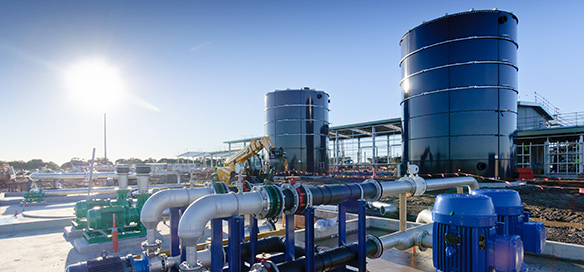Barwon Water is on track to achieve its 30 per cent recycling target by 2020 despite a $42 million recycled-water plant sitting idle at Black Rock for the past four years.
The authority reached 23 per cent recycled water use in 2015/2016, said general manager infrastructure services Paul Northey.
“We were tracking well against that target and are continuing to identify opportunities to maximise recycled water use.”
The authority was now updating the targets for its 2018-2023 Price Submission, Mr Northey said.
Barwon Water built the $42 million plant at Black Rock in 2013 to provide Class A water for residents in Armstrong Creek and northern Torquay.
But the plant was yet to produce any water for homes, Mr Northey said.
Providing Class A water to the Armstrong Creek and Torquay areas would not be cost efficient until the two growth areas reached 5800 homes, he said.
“This is expected to be reached in time for next summer.”
The areas now had about 3600 homes connected to the system, Mr Northey said.
“Barwon Water will continue to monitor demand and weather conditions and may bring the plant online earlier.”
Under the relevant planning schemes for Armstrong Creek and Torquay north new-home builders must pay an extra $1215.54 to install purple pipes for Class A water.
“Purple pipe schemes will ensure communities such as Armstrong Creek and Torquay north are well-placed to respond to times of dry conditions when drinking water may be scarce,” Mr Northey said.
Barwon Water was supplying drinking water through the Class A system to the homes connected at Armstrong Creek and Torquay, he said.
The authority was charging customers the Class A price of $1.81 per kilolitre for the drinking water, which normally cost $2.26.
The cost of producing Class A was higher than drinking water, Mr Northey said.
The State Government was undertaking a review of pricing policy to “incentivise” the use of recycled water, he said.
“All final pricing is determined by the independent Essential Services Commission to ensure prices are what communities are willing and able to pay.”
The Class A plant was producing about 250 million litres a year which Barwon Water was blending with other recycled water for local farms, golf courses and large scale agriculture customers, Mr Northey said.
Recycled water ‘nearing 30%’ as $42m plant idle

Digital Edition
Subscribe
Get an all ACCESS PASS to the News and your Digital Edition with an online subscription
Cats’ skipper shines with timely ton
Lara captain Daniel Weigl delivered a timely blow with a superb innings against St Joseph’s to keep his side in the Geelong Cricket Association...








